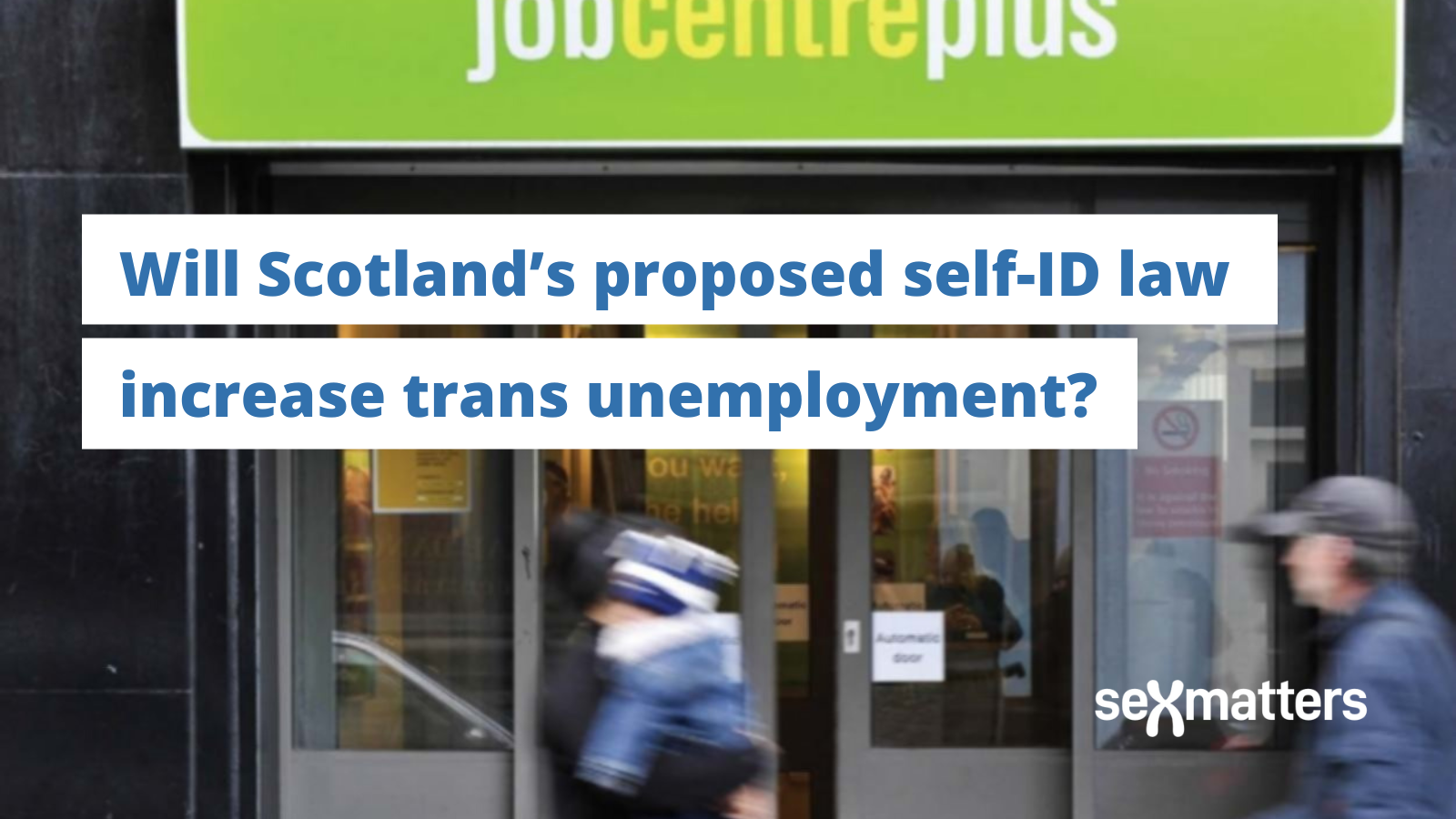Sex self-ID in Scotland and transgender unemployment

The Gender Recognition Act 2004 was an extraordinary piece of legislation intended for an extraordinary group of people. It was passed to allow people who had transitioned under medical supervision to change the legal sex recorded on their birth certificate “for all [legal] purposes”.
Now the Scottish Government is proposing to reform the legislation in a way that risks harming the employment prospects of increasing numbers of young people identifying as transgender.
Under Section 22 of the GRA, anyone who might come into contact with a trans person’s information in an official capacity – employers, potential employers, service providers, NHS workers, local-government staff, police officers, charity workers, the tax and benefits office, their children’s school — is banned on threat of criminal penalties from revealing information that “concerns the person’s gender before it becomes the acquired gender” (i.e. their biological sex and associated identity).
The trouble is that it is extraordinarily hard to hide the fact of your sex, which becomes written on your face and frame once your body starts to produce enthusiastic quantities of testosterone or oestrogen at puberty. While some “female-to-male” transitioners become hard to spot, very few “male-to-female” do. Broad shoulders and a deep voice, a prominent brow and well-developed chin, a male gait, an Adam’s apple, large feet and hands, male-pattern baldness and beard growth all require heroic efforts to hide or modify, rarely fully successfully.
Moreover, the very idea that being trans is a shameful secret, and that trans people should try to hide the truth, seems increasingly outdated in a world which celebrates “Trans Day of Visibility”.
Scotland is proposing to extend official concealment for this secret, so shameful that telling the truth becomes a criminal act, to a much greater number of people.
Sex Matters has raised the issue about how identity secrecy may be exploited by bad actors seeking to erase their past. Many have raised concerns about what this law would mean for service providers trying to provide separate-sex services. But perhaps the most immediate impact would be to damage the employment prospects of people who identify as transgender.
Unemployment levels are high among people who identify as transgender. A survey of UK employers found that one in three employers admit they are “less likely” to hire a transgender person.
Only 4% of businesses said their workplace culture was diverse enough for transgender people to fit in, and customer-facing sectors of retail, IT and leisure and hospitality were the least likely to say they were willing to hire a transgender person.
The UK government’s national LGBT survey found that trans people were less likely to have had a paid job in the 12 months preceding the survey than the UK general workforce (65% of transwomen and 57% of transmen had one). In Ireland, where self-ID has been brought in, more than 50% of trans people are unemployed, and those that are tend to be in poorly paid roles.
The only sector where trans people are more likely to be employed is “sex work”, the euphemistic term for prostitution. Trans people are over 1,000 times as common among sex workers as in the general population.
Scotland’s proposed legislation will offer sex secrecy to a much wider group of people, including children from age 16, without any doctor’s assessment or medical treatment, and with only a six-month waiting period between deciding to make the legal change and gaining lifelong legal secrecy about their sex. This will undoubtedly mean that this pool of people includes many more who are clearly recognisable as their sex, and who have not worked through with a mental-health professional whether their expectations for social acceptance by others are realistic.
People with this legal status present a risk to employers. Employers will be required to say to customers, clients, students and other employees that they do not know what biological sex their employee is, only what their legal sex is. And they will be forbidden from explaining the reason why (since the information that the person has a Gender Recognition Certificate is in itself protected). They will need to have systems to keep any information that reveals a person’s biological sex under tight security (even though it may be publicly obvious) or else risk putting those who access it as part of their job at risk of criminal prosecution.
Although some hope this will further the cause of trans inclusion, it is more likely to cause employers to find reason to avoid employing people who have, or who might avail themselves of, this extraordinary legal status and the risks it creates.
The medical criteria put in place around the GRA 2004 were designed to protect the specific group of people that Act was intended to help. By removing these safeguards and expanding the scope of the Act, the Scottish government will harm a much wider group, including increasing numbers of young people, by imposing unworkable and unreasonable conditions on their employment and their routes into adult life.
